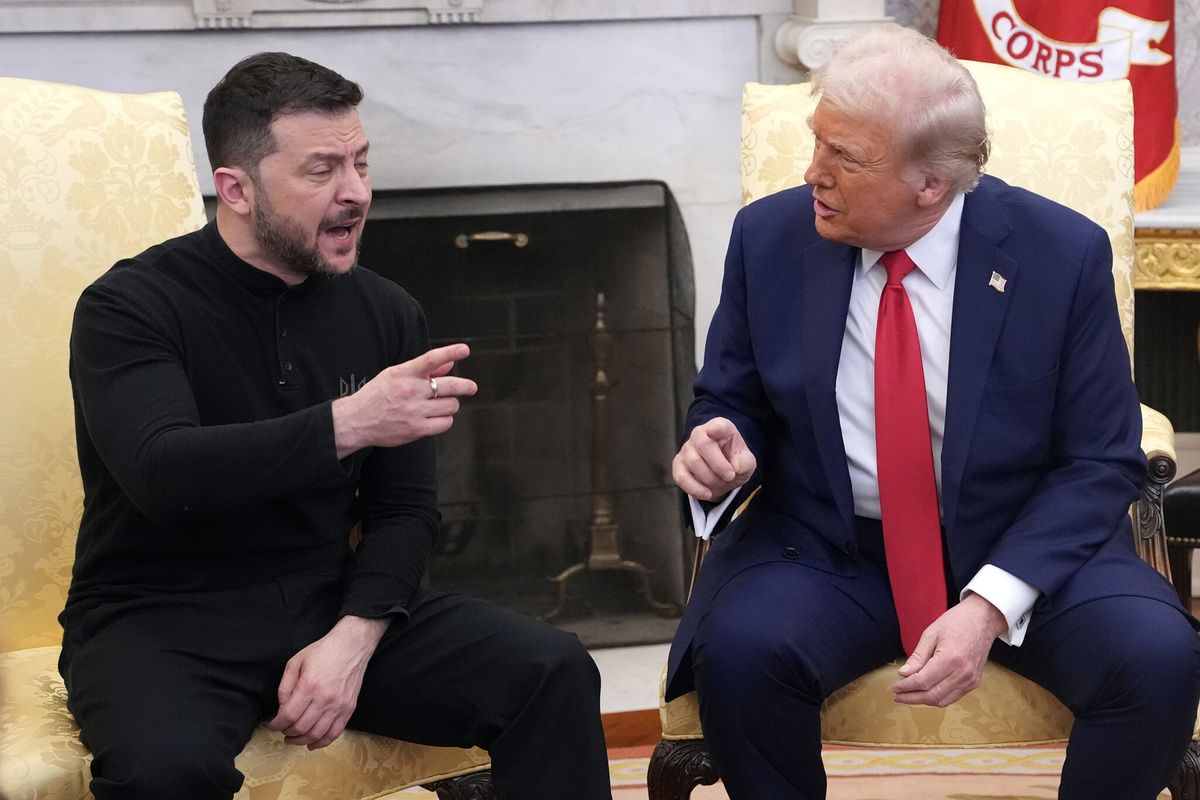Donald Trump made what was billed as a major speech on his strategy against ISIS earlier this week in Ohio. It was actually an important speech, even if you had to hack your way through his imputing near criminal conduct to the "Obama-Clinton" team and through a series of self justifying pronouncements that he (Mr Trump) had been right all along about all of this.
Some of that can be forgiven. Political campaigns cry out for simplification and differentiation. Make it clear. Make it different. Repeat.
Mr Trump's differentiation is stark: his predecessors are weak, stupid and corrupt. He's strong and smart. And he's equally straightforward. No babble about nation building. We're going to solve ISIS quickly by being very, very tough. And then we're going home. Case closed.
While that's certainly clear and simple, some might question whether that actually constitutes a strategy. So Mr Trump tried to put a little flesh on these bones in Youngstown.
He was still sketchy. It was a campaign speech, after all, not an NSC paper. But I dutifully hunted for clues as to what the actual plan might be.
Reading through and sometimes between the lines, I concluded that the key point for Mr Trump was that defeating ISIS and halting the spread of radical Islam was the core foreign policy objective of the United States. Period.
And it was a goal so important that other foreign policy goals should be subordinated to it. After all, he said—without condition—that any country that shared that goal would be our ally.
That's actually a pretty dramatic position. There are lots of other things globally that might compete for prioritization. Russian revanchism in Europe comes to mind. So do Chinese pretensions to territorial waters in the South China Sea. I even occasionally get nervous about nuclear proliferation.
But even if Mr Trump's premise might be subject to challenge, it's far from illegitimate and so I conceded that he was going to use this one criteria to define issues and allies: with us or not with us against radical Islam.
Trump specifically mentioned Jordan and Israel, fairly non-controversial entries for such an enterprise.
He also listed President Sisi of Egypt, who gave a powerful speech to the faculty of the prestigious al Azhar University in Cairo two years ago where he told Islamic scholars they had better get their act together and delegitimize the crazies of ISIS (my words—not his).
But Sisi has cracked down on civil society (especially the press and NGOs) even harder that his predecessors and there is a good case that it was Mubarak's repression that drove his political opposition toward the relative safe haven of the mosque and eventually into the hands of the Muslim Brotherhood. How free a hand is Mr Trump offering Mr Sisi in return for support? And if it is as free as it seems to be, who—in Egypt and in America—is going to pay the long term bill?
Mr Trump also made a point that "we could find common ground with Russia in the fight against ISIS." That's even more complicated than Egypt. How much of Russia's behavior in Crimea, in eastern Ukraine, in it's alleged cyber theft and doxing to affect American elections, in its dangerous buzzing of American aircraft and ships, in Russia itself (I could go on, but you get the point) are we willing to ignore or downplay so we can align Russia as an ally in Mr Trump's core struggle against radical Islam?
And would it even work? Russia certainly has a terrorist problem and Moscow is certainly bombing in Syria, but it is really not bombing ISIS. Russian strikes are carefully coordinated with the fire and movement of Assad's forces to expand Syrian government control against the rebel opposition, including factions armed and supported by the United States. Russia's goals in Syria seem more about regime survival, spheres of influence and east-west competition that about just killing jihadists.
Aligning with Moscow would also put us somewhat in league with their allies in Syria, like Iran's militias and revolutionary guard forces. Just this week Moscow began airstrikes in Syria from bases in Iran. That alignment would also include Iran's proxies, the Shia terrorist group Hezb'allah, even though Mr Trump pointedly included both Teheran and Hezb'allah in his catalogue of radical Islamists.
Although Mr Trump did not mention it, if you follow his logic, we also might want to think about leaving some space on our bench for Bashar el Assad. His government, though brutal, was unmistakably secular before the revolution and he has since labeled all of his opposition as terrorists. And, to be fair, the longer the war has gone on, the more fundamentalist his opposition has actually become. If opposing radical Islam is the core criteria, isn't Assad now our friend?
Of course, it was Assad that triggered all of this in the first place, suppressing the legitimate democratic opposition so violently that it was driven into the hands of waiting jihadists. And most observers still believe that you cannot deflate the Sunni (jihadist) rebellion while Assad or Assadism still rules in Damascus.
Which brings us back to Mr Trump's simple first premise: that we're indifferent to what nations otherwise do as long as they are willing to help us kill jihadists. Which, perversely, may actually be a pretty good formula for ensuring that we are going to have to kill jihadists for a very long time.
The point is that these challenges aren't as simple or as easily solved as has been advertised. And to pretend that they are, even in a political campaign, will not make anything better.
Youngstown may have raised more questions than it answered.












